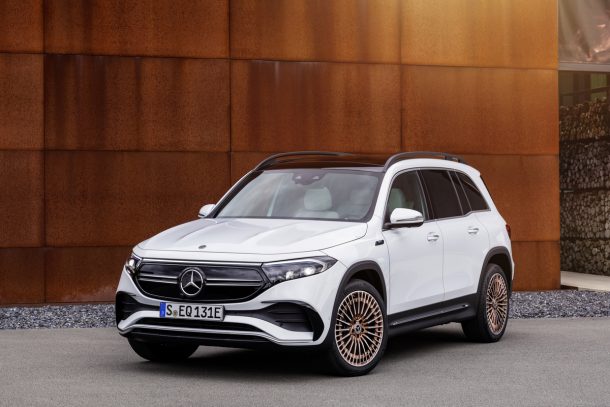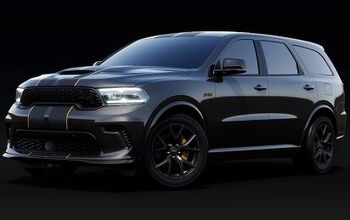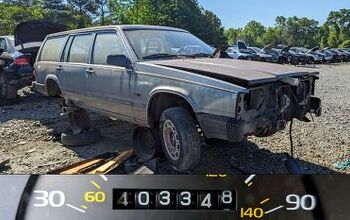California PHEV Owners Return to Gas Power
Electric vehicles are one way to carbon neutrality. Yet 20 percent of California PHEV owners have gone back to gas-powered vehicles.
Published in Nature Energy on April 26th by the Institute of Transportation Studies at the University of California, Davis, the study found that PHEV buyers in California were abandoning the technology at a rate of 20 percent, as were 18 percent of battery electric vehicle (BEV) owners.
According to the researchers, dissatisfaction with charging convenience, and not having level two, 240-volt charging at home, were the primary reasons.
The National Center for Sustainable Transportation (NCST) funded the analysis. The US Department of Transportation supported the University Transportation Centers program. The California Air Resources Board (CARB) paid for the questionnaire portion. They are one and the same agency that sniffs tailpipes for excess emissions.
Researchers Scott Hardman and Gil Tal had a premise: In order for EVs to be successful, it meant buyers needed to repurchase EVs. Abandoning the technology would prevent EVs from reaching 100 percent market share. They methodically surveyed California households who had purchased PEVs between 2012=2018. EVs’ success relied on adopters continuing to purchase EVs. 18 percent of EV owners and 20 percent of PHEVs were dissatisfied enough to return to gas-powered vehicles.
As noted by cnet.com, the problem centers around at-home charging. Level 2, 240-volt charging, or a lack thereof, is what led to discontent. Without the ability to recharge your EV at home, all the benefits of EV ownership go out the window. The lack of fast public chargers is a problem. Chargers that aren’t fast enough in comparison to refueling your car also diminished the EV experience.
Half the owners who bought another EV had Level 2 charging access, yet 30 percent who had access to Level 2 charging still decided against buying another EV. Their conclusion? It was pretty much even whether California PHEV owners decided to buy another EV or not. As the technology improves and charging installation is bundled with the purchase of an EV, it should help the green movement grow.
[Image: Mercedes-Benz]
With a father who owned a dealership, I literally grew up in the business. After college, I worked for GM, Nissan and Mazda, writing articles for automotive enthusiast magazines as a side gig. I discovered you could make a living selling ad space at Four Wheeler magazine, before I moved on to selling TV for the National Hot Rod Association. After that, I started Roadhouse, a marketing, advertising and PR firm dedicated to the automotive, outdoor/apparel, and entertainment industries. Through the years, I continued writing, shooting, and editing. It keep things interesting.
More by Jason R. Sakurai
Latest Car Reviews
Read moreLatest Product Reviews
Read moreRecent Comments
- Kcflyer more smoke and mirrors from the installed dodo
- Vatchy "are making cars and trucks that give American drivers more choices today than ever before"Fine, because more choices are good. What is not good is that they are trying to cut our choices down to 1 - electric - instead of letting the market decide. That, in this case, is just stupid. I personally don't have anything against electric cars but my choice is no for as long as possible.I bought a six-cylinder pickup to pull a camper. I have absolutely no interest in pulling it a hundred miles, finding a place to unhook and leave it, find a working charging station, waiting 30-60 minutes (or longer) to fill up, then go back and hope my camper is still where I left it, hook up, and finally go. So, drive a hundred, spend an hour or more, drive another hundred, spend another hour or more, etc. That is not my choice.
- Jkross22 Didn't regulatory pressure push carmakers to cheat on emissions testing? VW took most of the smoke, but didn't every other company making diesels cheat?I wonder how many are cheating now - tests giving false EV range, MPGe phantom numbers, charging times/speeds being fudged, etc. I'm grousing more about the reality (futility?) of demanding something the public doesn't want/need/value rather than the 'common goodness' of the effort itself. With this effort on the heels of the billions being spent on chargers and less than 10 being built in the last few years, most of us are developing perma-stinkeye. Or it could just be the name Pete Buttigeig - a name synonymous with incompetence.
- Jeff My question to you Matt are CAFE standards basically going to still give an advantage to vehicles with a larger footprint and profile. My fear is that trucks will continue to get larger and more expensive and that the few smaller trucks offered to those of us who really want smaller trucks and don't need or want larger trucks will completely disappear from the market. Will the current midsize trucks eventually end up the size of the current full size pickups? I currently have a hybrid Maverick and don't want a larger profile truck. It seems that smaller vehicles that are more efficient should be encouraged but I realize that CAFE standards and manufacturers don't want these vehicles.
- Noe65795977 If asking price was 50% lower , would be with considering ..


































Comments
Join the conversation
I bought one just to get on the carpool lane for free, and now that deal is over I am no longer going to buy an EV / plug in. If the price is right I might consider in the future but at the moment I like my gas car better.
I have a PHEV, and my next car is going to be a gasser, because I want to do some track driving. But, I'm certainly an edge case. I may keep the PHEV to use as an additional car, because it's been such a good car and I won't get that much money for it. If I didn't want to drive on the track, I'm not sure what I'd get. EVing around town is so much nicer than driving a gasoline powered car, it would be hard to give that up, but I don't see an EV that I'd really like. Since what I have has been so reliable and cheap to run, I'd probably just keep it for a few years and see if something else I really liked came along.